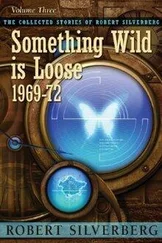Project Itoh - Genocidal Organ
Здесь есть возможность читать онлайн «Project Itoh - Genocidal Organ» весь текст электронной книги совершенно бесплатно (целиком полную версию без сокращений). В некоторых случаях можно слушать аудио, скачать через торрент в формате fb2 и присутствует краткое содержание. Год выпуска: 2012, ISBN: 2012, Издательство: Haikasoru/VIZ Media, Жанр: Старинная литература, на английском языке. Описание произведения, (предисловие) а так же отзывы посетителей доступны на портале библиотеки ЛибКат.
- Название:Genocidal Organ
- Автор:
- Издательство:Haikasoru/VIZ Media
- Жанр:
- Год:2012
- ISBN:9781421550886
- Рейтинг книги:4 / 5. Голосов: 1
-
Избранное:Добавить в избранное
- Отзывы:
-
Ваша оценка:
- 80
- 1
- 2
- 3
- 4
- 5
Genocidal Organ: краткое содержание, описание и аннотация
Предлагаем к чтению аннотацию, описание, краткое содержание или предисловие (зависит от того, что написал сам автор книги «Genocidal Organ»). Если вы не нашли необходимую информацию о книге — напишите в комментариях, мы постараемся отыскать её.
Genocidal Organ — читать онлайн бесплатно полную книгу (весь текст) целиком
Ниже представлен текст книги, разбитый по страницам. Система сохранения места последней прочитанной страницы, позволяет с удобством читать онлайн бесплатно книгу «Genocidal Organ», без необходимости каждый раз заново искать на чём Вы остановились. Поставьте закладку, и сможете в любой момент перейти на страницу, на которой закончили чтение.
Интервал:
Закладка:
So the cologne must have been the lingering scent of John Paul. My own nose might not have picked it up, but it was picked up by something in my nose.
“Damn. No semen,” continued Williams. He was referring, of course, to the results of the analysis that were now displayed on the screen in front of him. “I guess he didn’t miss his girlfriend all that much, then.”
I sat down, tasted the bowl of Czech sauerkraut soup in front of me—not bad—and started reading Lucia Sukrova’s file. Poring over the details of her life like some sort of stalker. Sure, I could justify it by telling myself it was just work, but was what I was doing any less sordid than Williams’s search for cum stains? I couldn’t really concentrate and closed the file.
I decided to access USA, partly to forget that I was in this den of professional peeping toms.
The network acknowledged my account, and the USA home page opened up.
Recently updated Intellipedia pages and the latest news items popped up in the topics area. The “hot topic” illustrated RSS feed was about the pictures of the massacres in India captured on keyhole satellite, complete with furious commentary from other members of the intelligence community who were logged in. The developments in post-nuclear-war India were a source of heated discussion for members of intelligence agencies across the world, and the discussion boards were buzzing.
A subpage in a window also showed a number of topics particular to my level of security clearance, along with dictionaries and wikis. USA’s official name was something like the National Defense Information Sharing Network, but for some reason everyone referred to it as the United Spooks Association, or USA for short.
Could you ever imagine a situation in which a company could easily store its information on a network for all its departments to access as necessary, saving time and money, and yet its various departments bypassed the network completely and kept on using their own local systems for the pettiest of reasons, such as not trusting the developers of the network, or due to simple precedent and inertia? To keep their entire infrastructure offline, despite the obvious cost and inefficiency? Well, this was exactly what had happened on a national scale—with the old United States information systems.
Departments insisted on sending executives to rendezvous with other departments in person despite the costs involved. Offices insisted on sending and receiving faxes, laboriously reentering data by hand every time. Administrations persisted in using outdated systems when far more efficient ones existed, and they did not even know where and how to look for them. Everyone looking out for their own little patch, battening down the hatches, reinventing the wheel that had been invented—and would continue to be invented—countless times by countless other organizations, all ostensibly on the same side. Such was the daily reality of the information agencies in the US.
Or so it went until the World Trade Center disappeared from New York. After that, everything had to change, and quick.
America got serious. Heavyweights were drafted in to build a massive information network from scratch. Administrators who showed the slightest bit of resistance to the new system found that their previously cozy little jobs weren’t so secure after all and were rapidly replaced by people who could get with the program. A truly integrated information service for the various branches of the intelligence infrastructure. And while they might have fallen short of their grandiose claim to have all the information in the world under one roof, they did at least succeed in dragging the US’s information systems kicking and screaming into the twenty-first century.
Right now though, there weren’t that many people who knew about John Paul. A handful of bigwigs and a few of my comrades in I Detachment. The fewer people who knew about a topic, the less likely that someone would update USA with useful leads.
Even so, I was in luck. I had posted on John Paul before I set out for Prague, and there were a couple of replies to my thread from some of my comrades who had also been assigned to this case.
“Donald’s left us a message about Prague,” I told Williams. “Check out USA. A topic I started. Search for ‘Prague’ and it should be your first hit.”
Williams logged in and opened the browser on the index page.
“He posted it only three minutes ago. Damn, the indexing on this thing is fast,” Williams said.
Prague is notorious as a place where people can disappear, Donald had written. According to European agencies, someone who disappeared in Prague was considered untraceable, allegedly.
This was news. These days it was virtually impossible to disappear from a developed country, whether you were in the US, Western Europe, Singapore or Japan. You needed to constantly prove who you were to buy food or to travel anywhere. This was true even if you were homeless, so if you were serious about wanting to disappear in any of these countries, you didn’t have many options other than to die in secret or to be locked up in isolation like a modern-day Kasper Hauser.
This was interesting information from Donald, though it was an “allegedly” because his information came from a friend of his in the State Department who had just attended the NATO Antiterrorism Best Practice Cooperation Conference in Frankfurt. The friend had heard it from a Dutchman who was in the same working group as him at the conference, and that Dutchman knew because he had heard so from a French acquaintance who worked in the MAEE, and the Frenchman had in turn surmised this from his own informants and spies and agents provocateur … Something like that, anyway, Donald had explained.
Conjecture and hearsay, in other words. Par for the course in the intelligence field. Gossip became rumor became urban legend and was reported at a later date as gospel truth and even old news. There are alligators living in the sewers of New York, that sort of thing. The UN has a secret fleet of black helicopters ready to invade the US at a moment’s notice, and the US government is in cahoots with aliens, with whom they’ve signed a covert treaty. Mostly idle gossip, in other words. The problem was that there were occasionally some useful gems of information among the sea of half-truths and falsehood. Look at Iran-Contra: a broken clock is right twice a day, and sometimes the conspiracy theorists are right. Rumors couldn’t just be dismissed out of hand, as much as that would have made my life easier in this instance.
Prague is notorious for people disappearing. Sure, I could have ignored this piece of information as two-bit gossip.
But the fact was that John Paul did disappear here, correct?
And not just the once. A few years ago, when he first disappeared from the world. And now, again, only a few days ago.

Checkpoint. Checkpoint. Another checkpoint.
I passed through how many checkpoints as I tailed Lucia Sukrova?
When I entered the metro. When I rode a streetcar. When I entered a shopping mall.
After 9/11 the world was dragged into a war against terror. The president granted the NSA authority to spy on American citizens, and military presence in cities became commonplace. Other countries followed suit to a greater or lesser extent. But however hard the world seemed to tighten the screws, terrorist acts seemed to keep slipping through. And so it went, until finally an Islamic fundamentalist group set off an atomic bomb in Sarajevo, wiping it from the map.
Hiroshima and Nagasaki were no longer the only ones in their select club. Sarajevo had become a giant crater, a land contaminated with death in the air and in the soil.
Читать дальшеИнтервал:
Закладка:
Похожие книги на «Genocidal Organ»
Представляем Вашему вниманию похожие книги на «Genocidal Organ» списком для выбора. Мы отобрали схожую по названию и смыслу литературу в надежде предоставить читателям больше вариантов отыскать новые, интересные, ещё непрочитанные произведения.
Обсуждение, отзывы о книге «Genocidal Organ» и просто собственные мнения читателей. Оставьте ваши комментарии, напишите, что Вы думаете о произведении, его смысле или главных героях. Укажите что конкретно понравилось, а что нет, и почему Вы так считаете.












